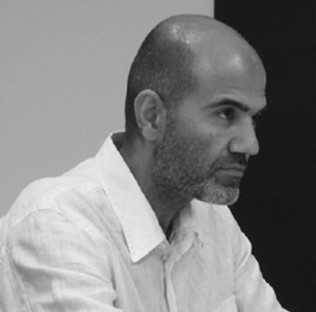They may fight but close ranks to protect shared privileges.

IT is no surprise that Malik Riaz and his £190m are already fading from the public eye. Modi sarkar is doing its best to consolidate majoritarian tyranny next door, lawyers in Lahore are reminding us how retributive, mob mentalities pervade society by ransacking a hospital, and Asif Zardari has finally made bail. Some of these are important matters to which we ought to dedicate attention. But ultimately all such events are simply cogs in the ever-turning ‘breaking news’ wheel.
The Malik Riaz story merits more introspection from society at large, because it tests our own principles and visions of a more just society. First, the old news: Pakistan is dominated by the rich and powerful, who make tactical, self-serving alliances up and down the political-economic food chain to maintain power.
They fight like cats and dogs, especially along civ-mil and ethnic fault lines, but close ranks and protect shared privilege at crucial junctures. Malik Riaz embodies this intra-elite solidarity’, the mainstream political parties — and the establishment that sits above them — are alleged to have patronised him and been rewarded for doing so.
But what about the many self-respecting readers of this newspaper and others of similar ilk? Not the wretched of the earth by any means, but arguably not part of the ruling class either. Most would categorise themselves as part of the mythical middle strata, some with lineages traceable to the colonial era, others of more recent, vernacular vintage. Whatever the genealogy, most of us claim to have no connection to the shenanigans that play out in the dark world inhabited by Malik Riaz & co.
They may fight but close ranks to protect shared privileges.
At the risk of offence, this is like an ostrich digging its head in the proverbial sand.
Malik Riaz has not only come to symbolise the profiteering of our ruling clique, but speaks to what is essentially a hegemonic aspiration amongst many, many ‘ordinary’ Pakistanis to live in a gated housing community, replete with safety, an uninterrupted supply of basic amenities and a generally ‘respectable’ life.
This demographic cannot be reduced to any particular ideological orientation or political alignment, but has generally imbibed the idea that the ‘public sector’ is beyond repair and so idealises the housing, education, health and other facilities provided in a Bahria, DHA or the many other schemes springing up across Pakistan. Some don’t even want to live there — they just buy a plot or two as an investment for their kids’ education or old age.
In this demographic of people falls those who support Imran Khan’s incessant rhetoric of anti-PML-N/PPP accountability, and Pervez Musharraf before him. Yet this same demographic includes those who are Nawaz Sharif or Asif Zardari loyalists. One can find ANP, PkMAP or other ethnic-nationalist parties’ supporters. Serving and retired personnel of the civil and military services are very much on the list as well.
Those who own or want a plot in a housing scheme can be aghast at mob violence like that of lawyers at the Punjab Institute of Cardiology as well as the treatment meted out to our religious minorities. They may support Pakistan’s insular foreign and strategic policies or may be outspoken opponents of them. They may have always stood against jihadi violence, or still harbour a strange fascination for the use of proxies to defang the proverbial ‘foreign hand’. You get the point.
Malik Riaz earns his billions not just because he has the backing of the coercive apparatus of the state or rich lobbies. He earns his billions because he provides a financial asset, a commodity, that many people in society want to purchase, an aspiration that transcends purely ideological oppositions. In creating the idyllic gated community, the property developer dispossesses the very poor, living in goths and katchi abadis, on mountain tops and river deltas. The gated housing scheme and the lifestyle that it engenders is therefore both a symbol of class privilege and contributes to the further destruction of already fraying ecosystems. And many who want the proverbial plot maintain middle-class sensibilities of environmentalism and commitment to the public interest.
In short, those of us on the progressive side of the ideological divide in this society will have to answer the £190m question. There is no individual solution to the structural problem identified here — only collective and political choices. It will take time to build a viable alternative to the Malik Riaz model of ‘development’.
To take an immediate example, the Labour Party under Jeremy Corbyn is trying to do just that, notwithstanding the result of yesterday’s election. Young people in the UK, like in Pakistan, are at least beginning to consider systemic alternatives to capitalism. Our ideas and principles about secularism, ethnic and gender equality, rule of law and civilian supremacy must tally with the question of class. Else we are just chasing paper tigers. The article was first published in daily Dawn, Dec 13, 2019
Dr Asim Sajjad Akhtar is the President of Awami Workers Party Punjab chapter, currently teaching at Oxford University, London, on fellowship.
